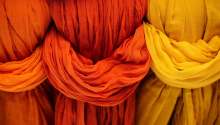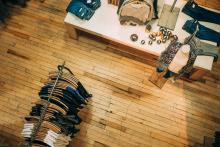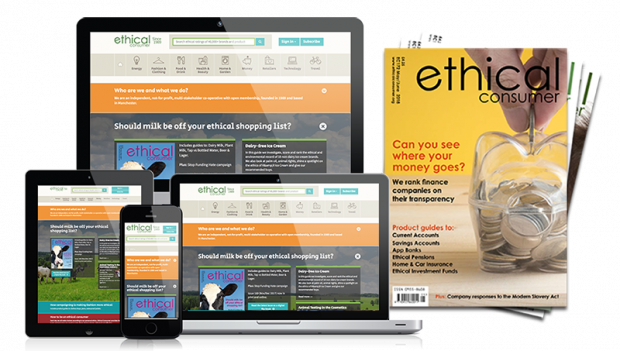What is viscose?
Around 7% of clothes are made from viscose which is also sometimes referred to as rayon. This means that you are likely to have some in your own wardrobe – either pure or blended in with other fibres like cotton.
Viscose is made by chemically treating wood pulp – usually from trees or sometimes from bamboo. And because plants are the source material, viscose garments are sometimes referred to as ‘eco’ or ‘natural’.
An investigation into the supply of viscose, a man-made fibre widely used in the textile supply chain, has uncovered evidence of the deadly impact of its production.
A number of top UK brands that feature in our guide to high-street clothes retailers are buying fabric from highly polluting factories across Asia.
Evidence gathered by the Changing Markets Foundation at locations in Indonesia, China and India found that viscose factories are dumping highly toxic waste water into local waterways, destroying marine life and exposing workers and local populations to harmful chemicals.
The report, titled ‘Dirty Fashion: How pollution in the global textiles supply chain is making viscose toxic’, reveals links between the polluting factories and major European and North American fashion brands including a number of companies featured in our guide to clothing retailers:
- H&M
- Zara/Inditex
- ASOS
- Levi’s
- Tesco
- United Colors of Benetton
- Burton
- Marks & Spencer
- Asda
- Next
- Debenhams
- Matalan
Find out more about viscose in our guide to choosing sustainable fabrics.






